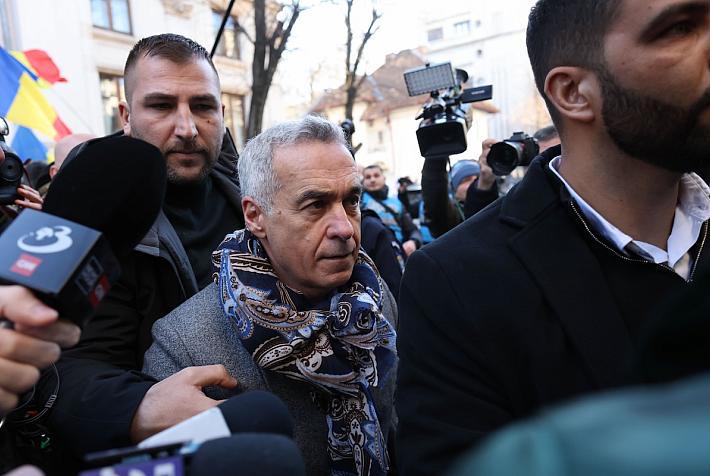Convicted ex-Romanian PM Nastase: Complaint made to Europe's Human Rights Court, suicide attempt genuine

Ex-con former PM Adrian Nastase has been talking to the press, following his recent release from prison for corruption crimes. Nastase said he submitted a request to the European Court of Human Rights (ECHR) in December 2012 and that his suicide attempt was no scam – the scars, he said, prove the sincerity of his efforts to end his own life.
The former PM's appeal to the ECHR claims injustice in his trial and conviction for corruption. The reports on local news service Mediafax do not, however, mention the exact nature of the supposed injustice.
“I'm looking forward to finding a legal remedy - and it's something that I have not said before – that in December, I made a complaint to the ECHR over this conviction. I want to show that the procedures were not correctly followed and demonstrate the injustice of the sentence,” Nastase said on local television station Antena 3.
Nastase also said that he would have never considered pleading for a presidential pardon from President Traian Basescu. This, he argued, would have been both a “humiliation” and an admittance of guilt.
When police came to take former PM Nastase into custody ahead of his incarceration in Jilava prison, he allegedly tried to shoot himself in the neck. He was then taken to hospital, but released shortly afterward and imprisoned. There were suggestions at the time that the disgraced politician was trying to get out of his sentence via a feigned attempt on his own life. The former PM refuted these suggestions, saying the scars visible on his body prove that it was indeed a genuine suicide attempt.
Former Romanian Prime Minister Adrain Nastase was released on March 18 this year. He was given a two-year jail sentence in June 2012, but was recommend for early release, within the normal parole rules, on the ground of good behavior.
According to the authorities, Nastase’s conduct in prison was good. He has took in educational and therapeutic programs, and got involved in training activities and positively influenced the other inmates, according to the report of the jail commission. He also constantly updated his blog.
After years of legal wrangling, former PM Adrian Nastase was given a definitive two year jail sentence by the Romanian Supreme Court back in June 2012. It was at this time, when the police came to take him to prison, that he made his unsuccessful suicide attempt. Following his recovery, he was sent to the Jilava prison to serve his sentence.
The former PM was found guilty of having financed his election campaigns with funds collected for the symposium ‘Quality Trophy’, organized by the State Inspectorate for Quality in Construction in 2004. Participation fees for the symposium in 2004, totaling EUR 1.6 million, went to four companies, controlled by two members of Nastase’s entourage.
Adrian Nastase, a former leader of the Social Democratic Party (PSD), served as PM when the PSD were in power between 2000 and 2004. The trial lasted over three years and involved 900 witnesses and 48 court hearings.
editor@romania-insider.com












